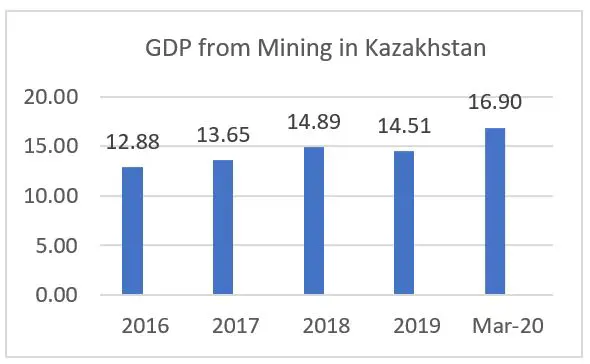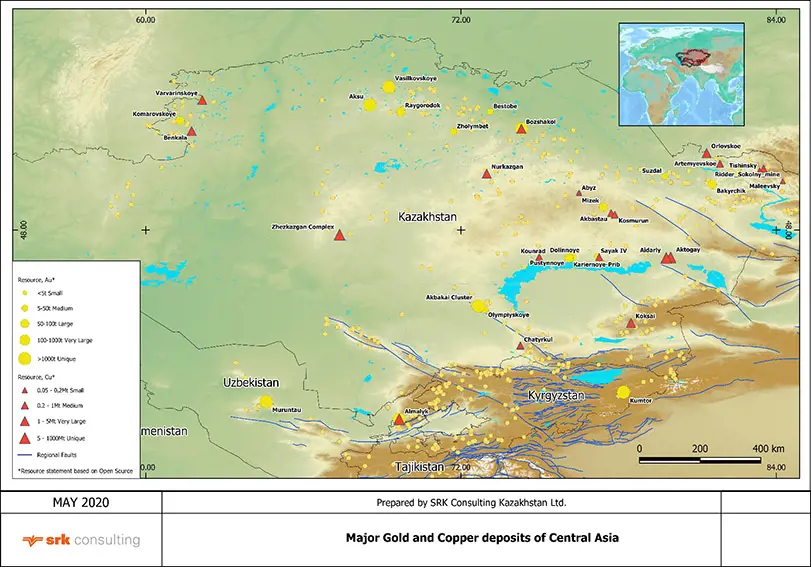Since independence in 1991, Kazakhstan has successfully implemented numerous geological exploration projects for solid minerals and hydrocarbons and has about 8,000 various deposits on its national register of significant occurrences. In the last thirty years, 133 new hydrocarbon deposits and more than 200 deposits of base, precious, and ferrous metals have been discovered, with significant gold deposits such as Vasilkovskoye, Bakyrchik, Aksu, Bestobe, Akbakai, Zholymbet, Bozshakol, Pustynnoye, and others.
High resource potential and medium investment risks are key factors in attracting investment in exploration and production projects. A new Subsoil and Subsoil Use Code, adopted on 27 December 2017, was designed to regulate in a new way this complex and critical area of the country's economy. International standards for public reporting of exploration results, mineral resources and reserves, compatible with the CRIRSCO template have been implemented in Kazakhstan which has an independent resource and reserves reporting code, KAZRC. This code is based on the general principles of the CRIRSCO code family (JORC).
A state program for geological exploration is also being developed for the period from 2021-2025, according to the decree of the Minister of Ecology, Geology and Natural Resources, with a investment of about KZT1 trillion (USD2.3 billion) targeting increases in resources of 700 Mt of hydrocarbons, 200 t of gold, 5 Mt of copper, 5 Mt of base metals, and 50 kt of uranium.
The programme proposes an exploration strategy aimed at defining additional resources to supplement current resources and reserves across Kazakhstan; scientific and research in support of geological exploration of mineral resources; automation and digitalization; development of infrastructure; and staffing of the geological industry.
Kazakhstan has a number of both local and international major mining companies operating in country, including ArcelorMittal (coal and iron ore), ERG (base metals), Kazakhatomprom (uranium), Kazakhmys (copper and gold), Kazminerals (copper and gold), and Kazzinc (Glencore) (a range of base metals and gold).
In addition, there are a number of medium and small mining companies such as Kazphos, Yildrim, Altynalmas, Polymetal, and Central Asia Metals, while oil companies operating within Kazakhstan include TengizChevroil, KazMunayGas, Total, and Gazprom.
Today, SRK Consulting (Kazakhstan) Ltd actively provides professional mining consulting services to many geological exploration projects in the Republic. In conjunction with skilled local staff, foreign experts with wide international experience are involved in delivering the best value for our clients. During ten years of operations in the Central Asian market, SRK has completed over 700 projects covering Due Dilligence, Feasibility Studies, Mineral Resource Estimation, Mining Geotechnics, Water Management, Mine Engineering, Extractive Metallurgy, Mineral Processing, and many others. The Almaty branch successfully operates not only in Kazakhstan, but also serves the rest of Central Asia in such countries as Uzbekistan, the Kyrgyz Republic, and Tajikistan.


